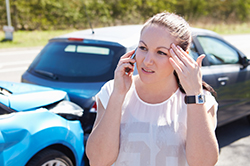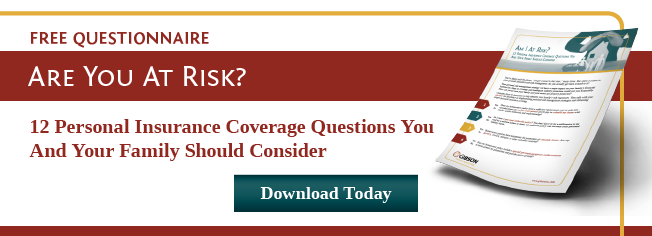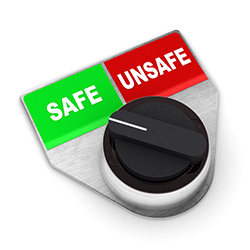 According to the Insurance Research Council, 16.3% of all drivers in Indiana do not carry any insurance. Outside of Indiana, one in seven drivers have no insurance. Of those who do carry it, they may only purchase the minimum limits required by the state. What happens if you get into an accident with one of these drivers? Will you be properly covered?
According to the Insurance Research Council, 16.3% of all drivers in Indiana do not carry any insurance. Outside of Indiana, one in seven drivers have no insurance. Of those who do carry it, they may only purchase the minimum limits required by the state. What happens if you get into an accident with one of these drivers? Will you be properly covered?
There is a lot of terminology used in auto insurance policies. Let’s take a moment to define the common coverages. According to the Indiana Department of Insurance, auto policies generally include the following types of coverage:
- Bodily Injury Liability: Pays, up to the limits of the policy, for injuries to other people you cause with your car.
- Property Damage Liability: Pays, up to the limits of the policy, for damage to other people’s property caused by your car.
- Medical Payments: Pays medical bills incurred by you and usually your passengers, up to the limits of the policy, if injured while riding in, entering, or getting out of the car.
- Collision: Subject to a deductible. It will pay for damage to your car caused by collision or upset.
- Comprehensive: Pays for damages to your car caused by perils other than collision or upset. This includes such losses as theft, fire, a windstorm and glass breakage. A deductible may apply.
- Other: There are other coverages such as towing and car rental which may be available.
Indiana requires that all newly written policies include uninsured and underinsured motorist’s coverage unless it is rejected in writing. Uninsured motorist coverage helps pay for damages when a covered person is injured or a covered vehicle is damaged and the person who caused the accident does not have liability insurance. Underinsured motorist coverage helps when the person who caused the accident does not have enough liability insurance.
The Indiana state minimum limits for uninsured and underinsured motorist coverage are:
- Uninsured Motorists Bodily Injury: $25,000 per person, $50,000 per accident
- Uninsured Motorist Property Damage: $10,000 per accident
- Underinsured Motorists Bodily Injury: $50,000 per accident
Do you notice something missing from that list? What happens if you are in an accident, your vehicle is damaged and the covered person does not have enough liability insurance? Indiana does not offer underinsured motorists coverage for property damage. Your policy would be able to help with bodily injury in that situation, but if the policy of the person at fault is unable to pay for the property damage caused to your vehicle then you may be in a bind.
If you want to be prepared for situations like this one, the only option in Indiana is to include collision in your policy. Collision is subject to a deductible, but it would step in to help cover property damage losses that surpass the policy limits of the person at fault. Without collision coverage you are left to either personally accept the additional loss or take the individual to small claims court.
What about if someone has a medical incident while driving, such as a sudden heart attack or seizure, and causes damage to your vehicle – are you covered? In Indiana, without collision coverage, your policy would likely not cover this situation either. If the driver does not have a reasonable expectation that a medical event would occur (no past history or medical treatment received), their actions are usually not considered negligent. Therefore, they cannot be liable for an accident. Collision coverage would help pay for the damage in situations like this.
People sometimes think of collision as unnecessary. They may say “I’m a good driver, I won’t be causing any accidents or damage,” or their car is older and they don’t feel it would be worth the expense. But are you willing to cover the costs when someone else’s insurance falls short? Are you prepared to pay if another driver experiences an unexpected medical event that causes damage to your vehicle? If the value of your vehicle is more than you are comfortable “taking on” you may want to maintain collision coverage. If the value of your vehicle isn’t much over the deductible or you are financially okay assuming the risk, you could decide it’s not worth it.
Now that you know that it may also include accidents where you are not at-fault, does this change your decision?





